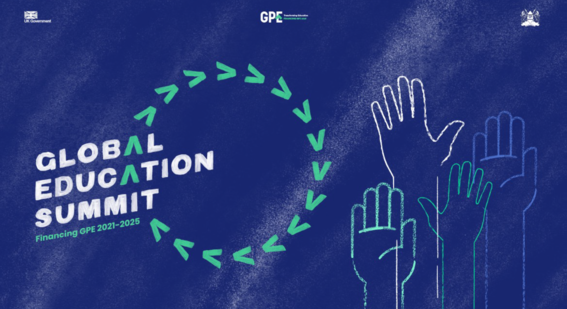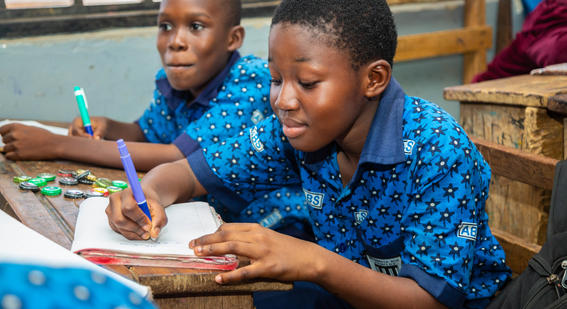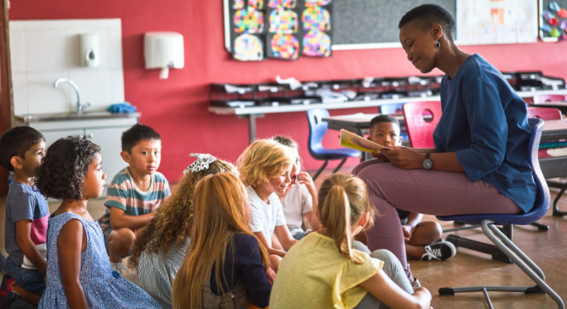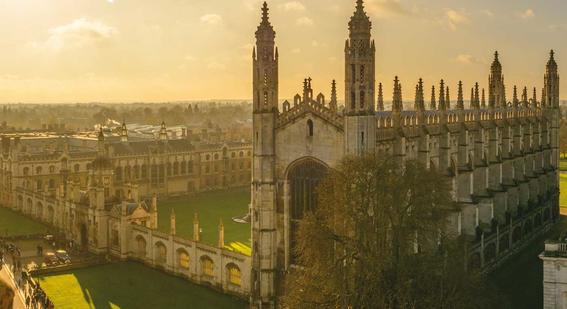International Day of Education: a great time to reflect on education transformation

Events such as the International Day of Education need to focus on one big idea to be memorable. The rallying cry of this year’s International Day of Education is the need to forge a new social contract for education: “In these exceptional times, business as usual is no longer an option. If we are to transform the future, if we are to change course, we must rethink education. This means forging a new social contract for education.”
This message immediately brought back fond memories of my French literature teacher who was passionate about the Enlightenment and chose to spend a disproportionate percentage of teaching time on Rousseau, Voltaire and Diderot rather than the heavy guns of the following century, Balzac, Flaubert or Stendhal. As someone who has worked in education for over 30 years, I realise this was the choice of an enlightened teacher within a system that allowed him to deliver the compulsory national curriculum in his own way. He managed to engage us at the tender age of 16 with concepts such as Rousseau’s social contract, common will, common good and the nature of democracy. This was because of his passion for his subject, a desire to educate beyond learning about literature, and a wicked sense of humour.
We don’t often have the opportunity in our busy lives to take time to reflect on such big and essential ideas, which is why the International Day of Education is a good time to think about UNESCO’s message to forge a new social contract for education. It reminds us all, in this period of global disruption, of the essential role of education in addressing global issues, that education is a human right, that everyone has a right to quality education and that education must be strengthened as a public endeavour and a common good.
While this message might sound quite idealistic and aspirational, it is underpinned by key principles on education transformation. One of these principles is the need for a society-wide commitment to include everyone in public discussions about education to strengthen education as a common good. This message is essential and brings us back from the realm of big ideas to the more mundane question of how to translate these big concepts into tangible change.
The journey from aspirational national vision to effective policy decision, to visible change in classrooms and ultimately to the level of real impact on learners, is complex. It’s reminiscent of the children's game of ‘Pass the Message’ where an initial message passed through many different people inevitably ends up quite different from where it started.
Since the beginning of the new millennium and the global commitment to achieve Education for All, there have been many examples of education reform programmes across the world, often with disappointing results despite the amount of effort and money spent. There has been a lot of discussion of education and reform, but limited academic debate around the key aspects of this practical journey from education policy to effective and sustainable change in schools and impact on learners’ outcomes. This is what makes the recent book Implementing Educational Reform so welcome. It provides a number of interesting education reform case studies over the past 20 years in a range of different countries, written by people who have been around and close to the action at some point. They describe the journey from initial vision and policy at national or regional level to implementation at classroom level. The book concludes with a set of principles aimed at policy makers to design better policies by taking the realities of implementation into consideration from the start.
In a podcast conversation with the two editors of the book I asked them about the main lessons they had learned from their analysis of all these case studies of education reform. They both agreed that, after context, communication is crucial:
“Communication is fundamental to any system that involves lots of people who have a direct and meaningful investment in how the system operates, that’s parents, that’s teachers, that’s the children themselves, as well as community actors and politicians and tax payers and the likes. And because the process of education is so important, because it’s preparing the next generation of citizens, building a better society, a better economy, you have to be able to explain why you want to steer a system in a particular direction and if you don’t explain why you want to do that, it won’t happen (Alan Ruby).”
That brings us back to UNESCO’s call for a new social contract for education. It is a welcome reminder that education involves everyone and therefore everyone should be involved in developing a common vision for education as the first necessary step towards education transformation.
So as part of the International Day of Education, let’s reflect on education transformation, support UNESCO’s call and use this opportunity to remember and celebrate education champions - the teachers. And for me, a special belated thanks to my French literature teacher back in the late 1970s!




